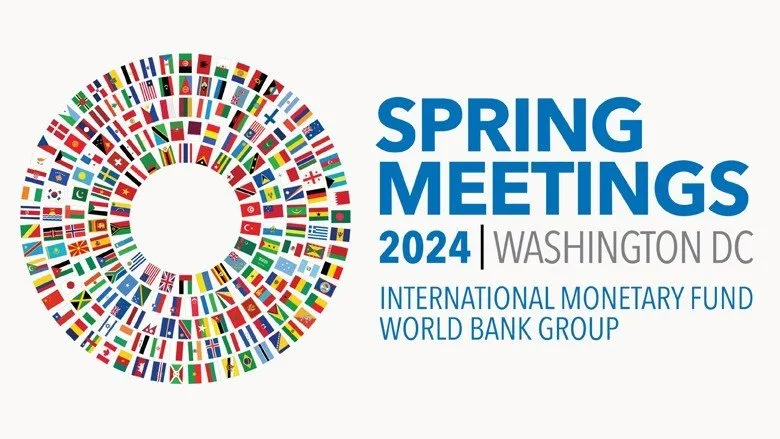

Amid the 2024 elections, Pulse on Political Narratives is a first-of-its-kind, AI-powered study identifying what candidates across the political spectrum are saying about issues that matter to companies and their stakeholders.


Finance ministers, central bank governors and development experts are convening in Washington this week for the annual spring meetings of the World Bank and International Monetary Fund (IMF). This year’s event takes place amid an environment of sluggish economic growth and rising sovereign debt, geopolitical concerns and demand for reforms in both multilateral institutions.
The IMF issued its updated economic forecasts. It reported that global recovery is steady but uneven across global markets. The U.S. economy is forecast to grow the fastest among advanced markets at 2.7% in 2024, while the European market will crawl in at around 0.8% and Japan at 0.9%. Ironically, Russia’s economy is forecast to grow by 3.2% this year — higher than that of any of the G7 economies which have imposed economic sanctions on Russia as a result of the Ukraine invasion.
Officials are discussing ways to maintain global economic stability during a year when elections around the world could lead to dramatic policy changes. Kristalina Georgieva, reappointed to a new five-year term as the Fund’s managing director, warned that the global economy is headed for “a sluggish and disappointing decade,” which she dubbed the “Tepid Twenties.”
The IMF reported that while the overall banking sector has stabilized since last year’s turmoil, there is a “tail of weak banks” globally that merit close watch, including those with a high concentration of commercial real estate or low capital reserves.
Higher interest rates and inflation around the world have created new sovereign debt risks. Half of the world’s poorest economies still have not recovered to where they were before the COVID pandemic.
The institutions are urging central banks to avoid a premature monetary easing that could complicate “last mile” disinflation efforts and cautioned governments not to inject new fiscal stimulus to promote growth at the cost of accelerating budget deficits. Higher interest rates and inflation around the world have created new sovereign debt risks. Half of the world’s poorest economies still have not recovered to where they were before the COVID pandemic.
The IMF also warned that rising protectionist threats threaten growth. The United States is considering new trade restrictions on China to protect U.S. investments in clean energy, steel and electric vehicles, arguing that China should focus on how its overcapacity is creating an uneven global playing field.
Geopolitics is not on the official agenda, but the economic consequences of ongoing conflicts in Europe and the Middle East are being discussed on the margins. New sanctions against both Russia and Iran are being negotiated among several member states. Ukraine is seeking a new finance package to address its growing budget deficit.
Institutional reforms are also on the agenda this spring. The World Bank’s new Managing Director, Ajay Banga, is under pressure to focus greater attention on addressing the impact of climate on developing nations. In 2022, U.S. Treasury Secretary Janet Yellen instructed the Bank to evolve how it lends to developing countries to better address climate change in its overall development portfolio.
Countries will be updating their Paris Agreement climate strategies next year and many are asking for funding support from the Bank. However, Banga told delegates that his institution “does not have infinite money now” to fill the financing gap for climate projects in emerging economies, and he is trying to attract private sector investment.

Author
Washington DC | International consultant to governments, multinational corporations and foundations on global economic, trade, development and climate issues.

Amid the 2024 elections, Pulse on Political Narratives is a first-of-its-kind, AI-powered study identifying what candidates across the political spectrum are saying about issues that matter to companies and their stakeholders.